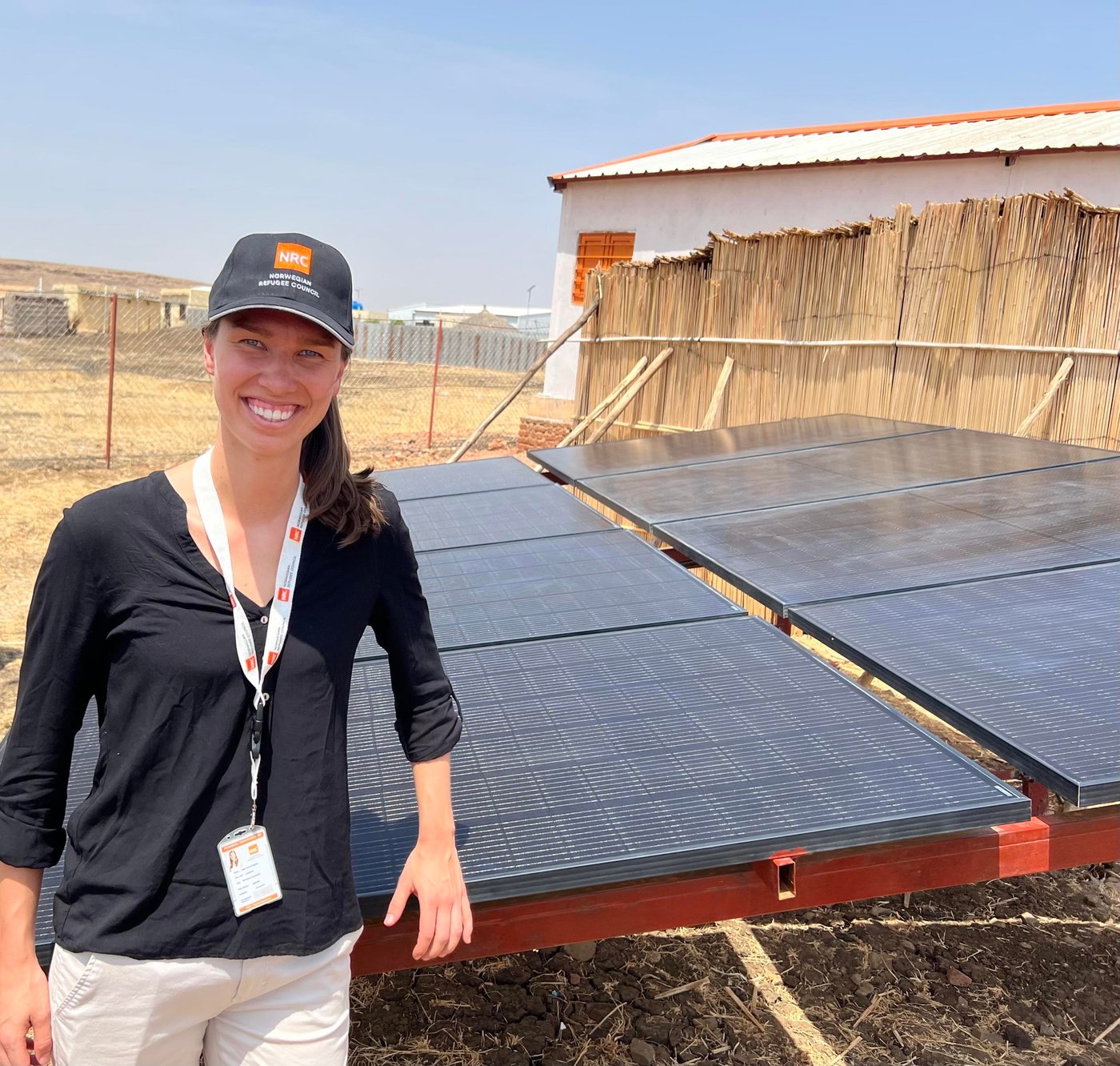We have been collaborating with Boston Consulting Group (BCG) for over a decade on various projects and strategies to provide more and better assistance to displaced people.
At the beginning of the year, Inger Katrine Bjerke, a consultant from BCG, travelled to Sudan and Kenya. Alongside colleagues from the Norwegian Refugee Council (NRC), she aimed to explore how we and other international humanitarian aid organisations could accelerate the green transition and reduce our carbon footprint. Six months later, we have jointly charted the course ahead and have a range of tools at our disposal, including a handbook for green humanitarian aid.
Bjerke has spent a significant part of 2023 in refugee camps and our offices in Sudan and Kenya.
“It has been an enlightening and inspiring period, and thanks to close and constructive collaboration with skilled and dedicated colleagues at NRC, we have made significant progress in this vital work,” says Bjerke.

In Sudan, she used her time to learn and gather experiences that could be put into practice. She also spent a lot of time in the Dadaab refugee complex in Kenya, one of the world’s largest refugee complexes, hosting over 320,000 refugees from Somalia.
There, she worked alongside our colleagues to plan and implement the green transition, sharing experiences and advice with the UN and other international humanitarian aid organisations.


From diesel to solar
“Operating a refugee camp or conducting humanitarian aid work without stable access to electricity can be extremely challenging,” says Geir Olav Lisle, Head of Organisational Development and Deputy Secretary General at NRC. “The usual solution involves noisy and polluting diesel generators. A good alternative is solar energy, which is what we are currently implementing. Our goal is to replace the clusters of diesel generators with solar panels.
“However, there are many obstacles on the way to achieving that goal. First and foremost, it requires funding and demands long-term thinking and investments. Additionally, installation and maintenance both require technical expertise.
“BCG is a valuable long-term partner, providing pro bono professional expertise in areas that complement our own staff. The vision is to replace all diesel generators with clean solar energy at all our approximately 250 locations, as well as to ensure long-term financing for the green transition.”
It’s also about ethics
Many of the people who are forced to leave their homes today are driven to do so due to climate change, which is causing prolonged droughts, floods and cyclones. Often, it’s a combination of this and war and violent conflicts.
In such cases, humanitarian aid organisations have an ethical responsibility and a duty to minimise their own carbon footprint. According to Lisle, we simply have no choice but to change the way we operate.
A win-win situation
What about those in need and/or living in refugee camps? Will they benefit from solar energy?
“Solar energy is a win-win situation. First and foremost, we all stand to benefit from reduced carbon emissions. But those living in camps or host communities can also directly benefit from the installation of solar panels,” says Bjerke, pointing to the NRC youth centre in Um Rakuba refugee camp in Sudan, where a solar power system allows young people to use the centre in the evenings, operate computer equipment and charge mobile phones.

Bjerke emphasises that, in a country or area where energy is scarce, green energy solutions can help facilitate the redistribution of resources to improve other societal functions.
“When humanitarian aid organisations use substantial amounts of fuel to meet their energy needs, it can cause things like diesel to become scarce or expensive. It is better to ensure that key infrastructure such as schools, hospitals and maternity clinics have access to these resources,” she says.
Together for the green transition
Through a decade of collaboration, NRC has already implemented numerous measures to make its humanitarian aid efforts greener, ranging from smaller, tangible actions, such as replacing onw fossil-fuelled vehicles with one electric vehicle in Burkina Faso, to more strategic initiatives like the newly developed handbook. However, Bjerke stresses that accelerating the adoption of solar energy will be a major endeavour with potentially major benefits, particularly in sun-rich areas that haven’t progressed as far in terms of development and infrastructure.
“The green transition in the humanitarian sector is already underway. Let’s work together to accelerate the adoption of solar energy, providing both displaced people and humanitarian aid workers with a better daily life,” concludes Inger Katrine Bjerke.
Learn more about our efforts to be greener:
- How NRC is greening its humanitarian aid.
- Greening the Orange: the path towards a greener NRC.
- EmPowering Africa’s most vulnerable (previous BCG paper with NORCAP).


